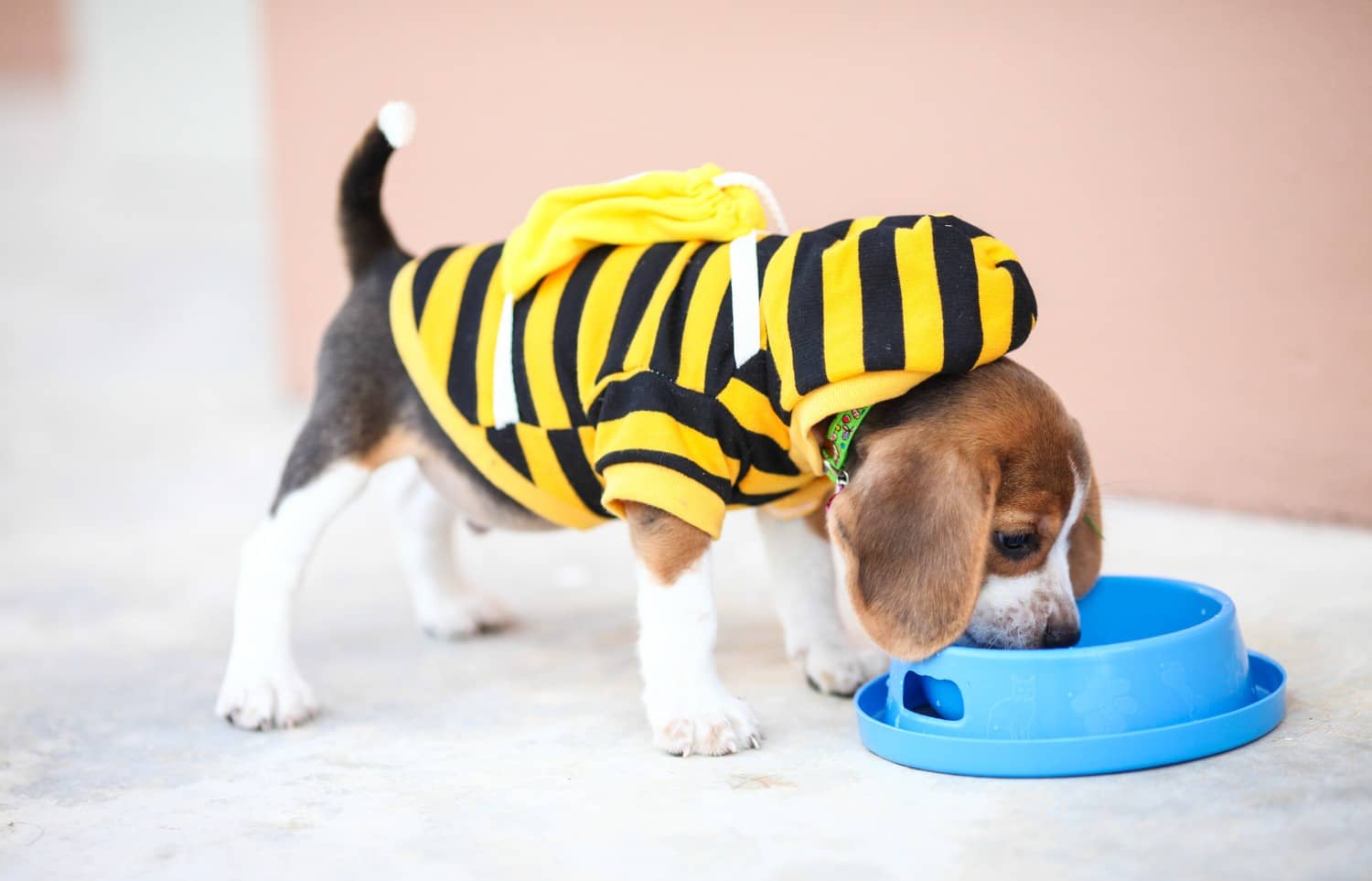
Welcoming a puppy into your home brings boundless joy and new responsibilities. Among these is ensuring your furry companion receives the right amount of water to thrive. But how much water should a puppy drink? This article delves into the intricacies of puppy hydration, offering expert advice to guide you on this crucial aspect of puppy care.
Table of Contents
How Much Water Should a Puppy Drink in 24 Hours?
I’d like to point out that understanding your puppy’s daily water requirements is paramount. Puppies, much like human babies, have unique needs. As a rule of thumb, a young pup should consume between ½ to 1 ounce of water per pound of body weight each day. However, factors like breed size, activity level, and environmental conditions can influence this. It’s essential to strike a balance, ensuring your puppy stays hydrated without overloading their delicate system.
How Much Water Should a Puppy Drink a Day?
When it comes to the daily water intake for your puppy, there’s no one-size-fits-all answer. Small breeds might need less water compared to their larger counterparts. A puppy might require around ½ to 1 cup of water per 5 pounds of body weight daily. Monitoring your puppy’s behavior, such as playfulness and urine frequency, can provide valuable clues about their hydration status.
Should I Leave Water Out for My Puppy All Day?
Leaving water accessible to your puppy throughout the day is generally recommended. Puppies, like active toddlers, tend to have unpredictable drinking patterns. By providing constant access to water, you ensure they can hydrate as needed. However, it’s essential to strike a balance to avoid overconsumption. You can establish a more structured watering schedule as your puppy grows and becomes more disciplined.
Can Too Much Water Be Bad for Puppies?
While water is essential, excessive consumption can pose risks. Just like humans, puppies can experience water intoxication or hyponatremia if they drink too much quickly. This occurs when the balance of electrolytes in their body is disrupted. Symptoms include lethargy, vomiting, and even seizures. Be attentive to your puppy’s intake, and consult your veterinarian if you suspect any issues.
How Much Water Should a Puppy Drink: Factors to Consider
- Breed and Size: Larger breeds generally need more water than smaller ones. This is due to their higher metabolic rate and greater overall body mass.
- Age: Puppies in their growth phase require more water than adult dogs. Their bodies are constantly developing, and water aids in various physiological processes.
- Activity Level: Active puppies that play vigorously will naturally need more water to replace fluids lost through panting and sweating.
- Weather and Climate: Hot and humid conditions increase a puppy’s water needs. Please keep a close eye on them during these periods and make sure they have ample water.
- Diet: The type of food your puppy consumes influences their water intake. Dry kibble might necessitate more water than wet food.
Hydration Tips for Your Pup
- Clean Water: Ensure the water bowl is clean and refreshed regularly to entice your puppy to drink.
- Proximity: Place the water bowl in an easily accessible location so your puppy can hydrate whenever they need.
- Observation: Monitor your puppy’s water intake and bathroom habits to gauge their hydration levels.
- Outdoor Adventures: Carry water to prevent dehydration when taking your pup on outdoor excursions.
FAQs
- How do I know if my puppy is dehydrated? Dehydration signs include sunken eyes, dry gums, lethargy, and loss of skin elasticity.
- Can I give my puppy electrolyte-enhanced water? Consult your vet before introducing any supplements, as excess electrolytes can be harmful.
- Should I limit water before bedtime? Reducing water intake a couple of hours before sleep is wise to prevent nighttime accidents.
- Are specific water bowls better for puppies? Opt for shallow bowls to prevent your pup’s sensitive snout from touching the bottom and getting wet.
- When should I worry about my puppy’s water intake? If your puppy consistently drinks significantly more or less than usual, consult a veterinarian.
- Can I flavor my puppy’s water to encourage drinking? A small amount of sodium-free broth is an option but consult your vet beforehand.
Conclusion
As a responsible puppy owner, understanding your furry friend’s water needs is essential for their well-being. Balancing hydration with moderation, monitoring their behaviors, and considering various factors will help you determine how much water your puppy should drink. Remember, every pup is unique, so tailor your approach accordingly. Providing adequate and appropriate hydration contributes to your puppy’s happy and healthy journey through life.








Leave a Reply
You must be logged in to post a comment.